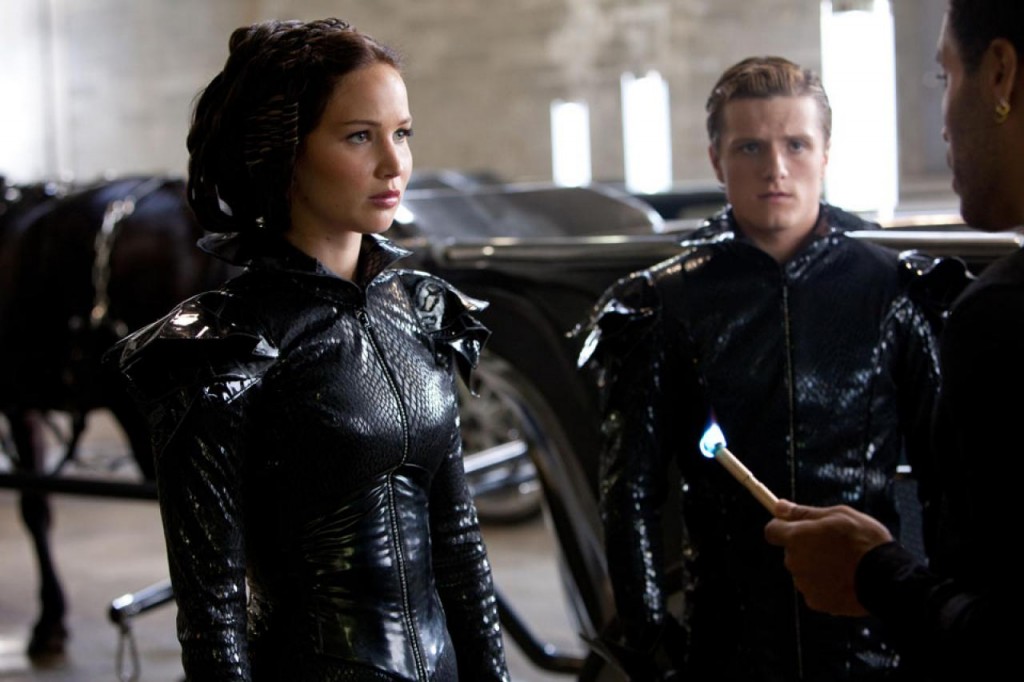Culture
Let the “Games” begin

The Hunger Games
dir. Gary Ross
Release Date: Mar 23, 12
- 1
- 2
- 3
- 4
- 5
- 6
- 7
- 8
- 9
- 10
As someone relatively uninitiated into the world of Suzanne Collins, as I started reading the first Hunger Games novel after viewing the film, The Hunger Games came as a pleasant surprise to someone half-expecting to see a glorified Twilight knock-off. To be fair, the film does share a great deal of the central qualities that made Twilight such a smash (supernatural/sci-fi premise, female lead in distress, love triangle), but the film succeeds in all the ways that Twilight fails so miserably.
This begins with its inspired central casting. Jennifer Lawrence, so radiant and self-possessed in the near-perfect Winter’s Bone, brings the same hard-nosed spirit to her depiction of Katniss Everdeen. Katniss volunteers to be a “tribute” in the Hunger Games, a Battle Royale in which children fight to the death, in place of her younger sister. The district whose tribute wins is then showered with gifts and food for a year, to make up for the lack of natural resources that plague so many areas in the future.
The history of Panem—or post-apocalyptic America—and the reasoning for The Hunger Games is glossed over in the film and confusing for those unfamiliar with the source material. This is the case with much of its exposition, but the film tends to emphasize character over plot, smartly focusing on the power of its lead. For those who haven’t read the novel, Katniss is the definition of a survivor, a girl who must provide for her sister and mother in the same way that her Winter’s Bone character did; Katniss and Ree are cut from the same cloth, sensible country girls who are less interested in finding a man than staying alive.
However, director Gary Ross and his screenwriters—which include Suzanne Collins—tend to emphasize the “finding a man” part maybe more than is necessary, pandering to its intended tween audience. Peeta (Josh Hutcherson) and Gale (Liam Hemsworth) play the other two sides of the film’s central love triangle, which is watered down for the big screen. In the book, Katniss’ budding feelings for Peeta are always blocked by her distrust of his intentions with her, knowing that they are rivals, and her understanding that she may have to kill him before the games are over. Although we can see these emotions in Lawrence’s face—who seems to have a better thematic handle on the situation than her producers do—the film plays more for the oohs and aahs of tween romance, somewhat diluting the stark realism of the novel. In a world like Panem, Collins mentions that a world of competition and survival is “the closest we will ever come to love,” and the movie seems to only remember that intermittently.
The other major problem with Ross’ adaptation of the film is that the film similarly shies away from the central violence of the story, relying heavily on close ups and the handheld shaky cam technique that was so in vogue after The Blair Witch Project. Although tossing the camera around to obscure the action worked well in that case—as the sense of mystery around what was actually happening contributed to the mood of terror—it here keeps us at a distance. During the film’s intended scene of pathos, in which someone must tragically lose their life, I shed not a tear, even though I just watched a child die. I sense a problem here.
However, what the film lacks in lyricism and committing to the Lord-of-the-Flies-meets-1984-for-kids craziness of the novel, it makes up for in tongue-in-cheek fun. Frankly, I would never have expected a film about child murder to be as incredibly entertaining and outright funny as it was, and I credit Elizabeth Banks and Woody Harrelson for keeping the proceedings light and snappy, the perfect juxtaposition to the ever-intense Katniss. Their Effie and Haymitch steal the film for much of their time in it, actually improving on the novel’s often lazy and broad representations of their characters, and the pure kitsch value of Harrelson’s wig is worth the price of admission alone.
Even if The Hunger Games isn’t quite the adaptation that Collins’ novel deserves—a critique of our reality-television culture truly daring in catering its message for a young audience—the film succeeds by giving us what we expect of a blockbuster: pure entertainment.